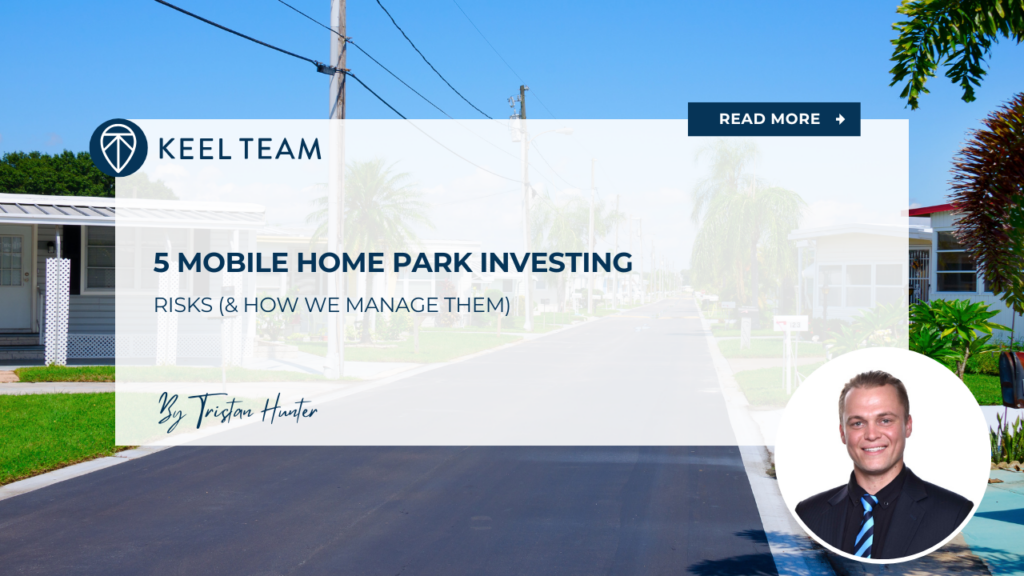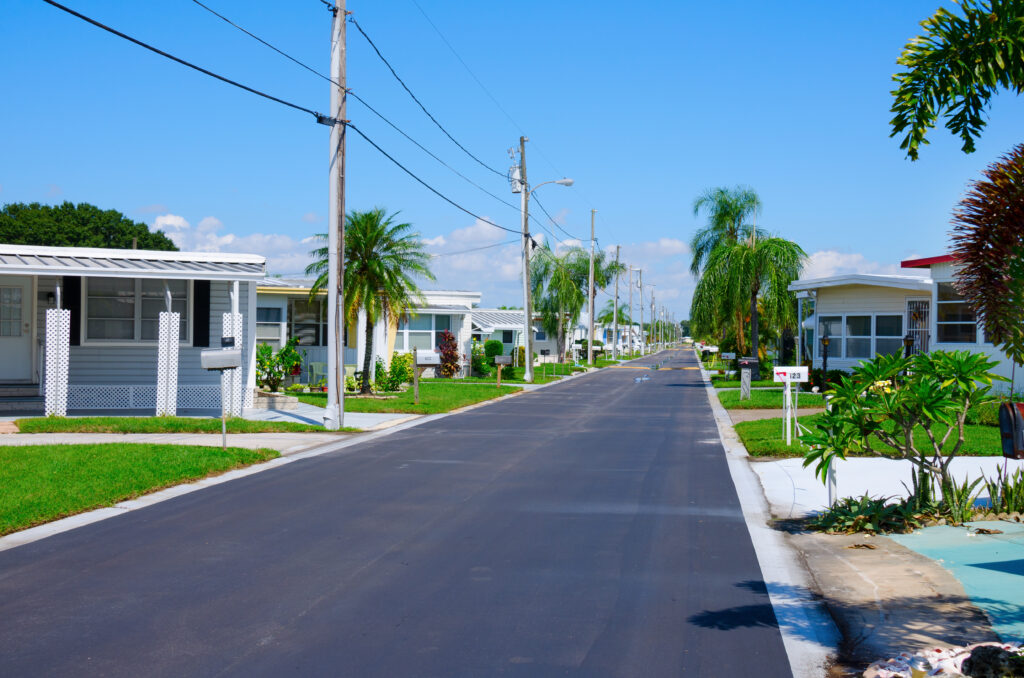5 Mobile Home Park Investing Risks (& How We Manage Them)
-
 Tristan Hunter - Investor Relations
Tristan Hunter - Investor Relations

Mobile home park investing offers strong potential for cash flow, appreciation, and long-term value. However, like any real estate investment, it may come with risks. Investors should always understand what could go wrong—and how experienced operators work to reduce those risks.
At Keel Team, we believe in transparency. While we can’t guarantee outcomes, we do focus on proactive risk management. In this article, we’ll walk through five common risks in mobile home park investing and share how we typically approach them.
1. Tenant Turnover and Collections
One common concern with mobile home park investing is tenant stability and rent collection. While mobile home parks often attract long-term residents, turnover and non-payment can still happen, especially in communities where homes are rented rather than owned.
How We Manage It:
We prioritize communities where residents own their homes and rent only the lot. This structure naturally encourages stability and reduces turnover. Additionally, we conduct thorough screening during home sales or rentals and provide residents with clear expectations around lease terms.
We also use professional property management systems like Rent Manager and technology to streamline rent collection and monitor trends in real time. If issues arise, we address them early through proactive communication.
Download our FREE eBook on the Top 20 things to know BEFORE investing in mobile home parks!
2. Deferred Maintenance and Infrastructure Issues
Many mobile home parks were built decades ago and may suffer from aging infrastructure. Problems like old water lines, outdated electrical systems, or neglected roads can drive up operating costs and create tenant dissatisfaction if not addressed properly.
How We Manage It:
Before purchasing any mobile home park, we conduct detailed due diligence on the condition of the infrastructure. This includes reviewing utility systems, inspecting roads, and identifying deferred maintenance items.
We then build capex budgets that allocate funds to fix or upgrade these areas as needed. From replacing sewer lines to resurfacing roads, we plan improvements that enhance the property long-term, while minimizing disruption to tenants.
3. Vacant Lots and Infill Challenges
Many mobile home parks come with vacant lots, which can be both a value-add opportunity and a risk. Filling these lots with homes is not always fast or easy. Transporting homes, securing permits, and connecting utilities takes time and capital.
How We Manage It:
We look for mobile home parks where infrastructure is already in place as much as possible, such as gravel pads, utility hookups, and paved roads. This lowers the cost and complexity of bringing in new homes.
We also maintain relationships with transporters, dealers, and setup crews to ensure an efficient infill process. While timelines can shift, our team works with a clear strategy and budget for each lot being filled. We generally mix both new and used homes to balance cost, affordability, and speed.
4. Local Regulations and Zoning
Zoning restrictions and local government policies can have a direct impact on mobile home park investing. In some areas, mobile home parks are not allowed to expand or add homes, and getting permits can be difficult. Regulatory risks can slow down infill or limit future value creation.
How We Manage It:
We always review local zoning laws, permitting processes, and city attitudes during our due diligence phase. This helps us avoid markets that are unfriendly to mobile home communities.
While we can’t predict policy changes, we aim to invest in areas where affordable housing is supported and needed, which typically leads to more flexibility from municipalities.

5. Operator Risk and Execution
One of the biggest risks in mobile home park investing isn’t the asset—it’s usually the operator. A strong mobile home park investment still needs proper execution: timely maintenance, tenant communication, budget management, and strategy. If the operator fails to perform, the investment can suffer.
How We Manage It:
As professional operators, we’re constantly working to execute our business plans with discipline. This includes regular reporting, investor communication, property inspections, and team oversight.
We also invest heavily in people, systems, and processes that support long-term operations. From acquisitions to property management to construction, each function is led by experienced professionals.
We stay conservative with our underwriting, and we don’t overpromise. Instead, we focus on doing the fundamentals well: filling vacancies, controlling expenses, improving infrastructure, and creating great resident experiences.
Final Thoughts
Mobile home park investing comes with real risks—but also real potential. The key is not to try to avoid risk entirely, but to understand it and manage it with care. While we can’t guarantee returns, we can show how we approach problems with thoughtful planning and execution.
At Keel Team, we look at every deal with a long-term mindset. We believe mobile home parks can be an excellent investment vehicle when run with integrity, transparency, and strong operational fundamentals.
Are you looking for MORE information? Book a 1-on-1 consultation with Andrew Keel to discuss:
- A mobile home park deal review
- Due diligence questions
- How to raise capital from investors
- Mistakes to avoid, and more!
Disclaimer:
The information provided is for informational purposes only and is not investment advice or a guarantee of any kind. We do not guarantee profitability. Make investment decisions based on your research and consult registered financial and legal professionals. We are not registered financial or legal professionals and do not provide personalized investment recommendations.

Tristan Hunter - Investor Relations
View The Previous or Next Post
Subscribe Below 👇





